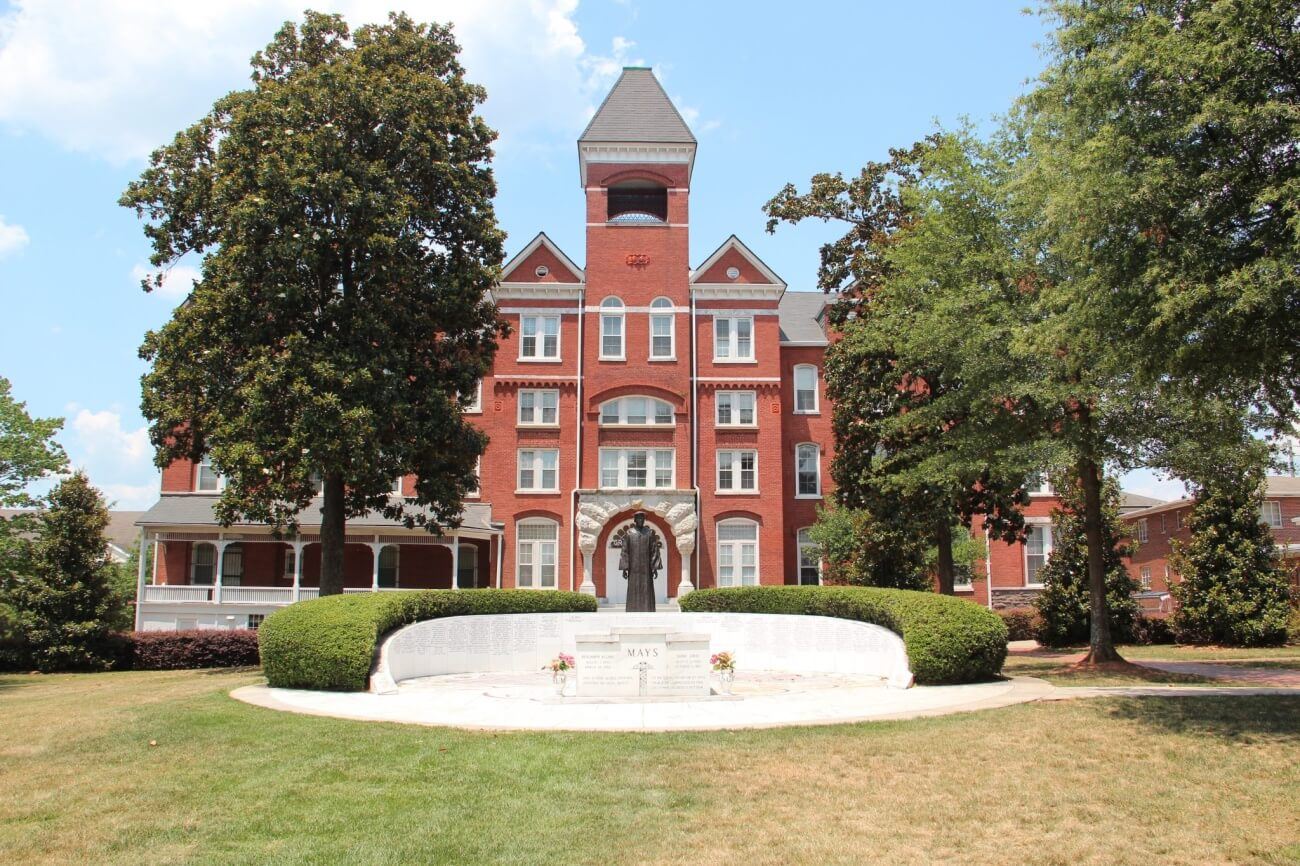The new Center for Black Entrepreneurship (CBE) that will be housed on the campuses of Morehouse College and Spelman College has raised millions in eight months, just one of latest initiatives aimed at spurring entrepreneurship at historically Black colleges and universities.
In February, the two Atlanta-based HBCUs and the Black Economic Alliance (BEA) Foundation, a non-profit that works for economic mobility and wealth creation for Black people, announced plans to establish the CBE, starting with $10 million in seed funding from Bank of America. Now, another financial giant has come aboard with Mastercard giving $5 million to the project in mid-September.
Like many commitments and initiatives created in the past year, discussions for the CBE began in the wake of George Floyd’s murder.
“Inspired by the once in a generation demand for racial justice, many were asking BEA for guidance on investing in Black entrepreneurs and Black companies, sharing that they didn’t know how to find them, couldn’t build them out of thin air,” Samantha Tweedy, President of the Black Economic Alliance Foundation, told The Plug.
“What this highlighted for BEA was the long-standing and systemic set of opportunity gaps among industry, the investment community and Black entrepreneurs, and from there began discussions about building what is now the Center for Black Entrepreneurship,” she said.
In 2019, Black Americans became entrepreneurs at a rate lower than that of their Latino and white counterparts, according to an analysis by Statista. Studies suggest Black entrepreneurship can exacerbate the racial wealth gap because Black-owned businesses are less likely than white-owned businesses to still be running four years after starting.
However, when their businesses succeed, Black entrepreneurs have a similar likelihood of upward mobility as their white peers if they are able to get the resources needed to flourish.
The CBE will help Morehouse and Spelman students develop their business ideas, learn how to fund the ideas and give them access to a dedicated portion of BEA’s Entrepreneurs Fund. With the $15 million in funding — so far — the schools will be able to create in-person and online entrepreneurship curricula, recruit faculty and develop programming for students outside of the classroom.
“The CBE will aim to eliminate barriers among Black entrepreneurs, professional investors and business builders by leveraging education, mentorship, access to capital and partnership opportunities,” Jasmine Gurley, spokesperson for Morehouse College, told The Plug. “It could impact new business and job creation in Southwest Atlanta, the metro area and across the nation as students pursue their entrepreneurial dreams.”
BEA aims to raise $50 million over five years and has reached about 30 percent of that goal to date with funding from Bank of America and Mastercard.
Mastercard’s commitment to the CBE also goes beyond money. The company will provide access to its tech training programs and digital tools, and sees the CBE as a pipeline for Start Path, the company’s global startup engagement program for later-stage startups. It will look to the entrepreneurs and innovation coming from the center to inform Mastercard’s work.
“We know that HBCUs have been doing the job and the task of bringing up talent for quite a long time,” Salah Goss, Senior Vice President for Social Impact at the Mastercard Center for Inclusive Growth, told The Plug. “What was important for us is to lean into that proximity and give tools to amplify what they’re doing.”
HBCUs and the next generation of entrepreneurs
Programs like the CBE can be pivotal for young Black entrepreneurs because HBCUs play an outsized role in educating Black students. In 2015, HBCUs made up just three percent of the nation’s four-year colleges but accounted for 15 percent of all bachelor’s degrees earned by Black students.
HBCU-alumni founders are landing everywhere, from The Lip Bar products that grace Target and Walmart shelves to a bevy of nationally acclaimed vegan restaurants. In 2018, Bloomberg found that more than half of surveyed Howard University business school graduates had gone on to found their own company, the highest share of any of the 126 schools in their best B-Schools ranking.
HBCUs are helping teach the building blocks of entrepreneurship to their students. Tennessee State University offers an entrepreneurship minor where students can learn about business strategy, marketing, financial modeling and even franchising.
At Fayetteville State University, the Center for Entrepreneurship provides students a leadership institute, pitch competition and undergraduate concentration. Langston University offers master’s degrees in entrepreneurial studies to their students.
In July, Clark Atlanta University, Spelman and Morehouse announced a $1.5 million, five-year initiative with Blackstone Launchpad to expand students’ access to mentors, funding and entrepreneurship-based internships. The school is also home to the Morehouse Innovation and Entrepreneurship Center, which provides access to entrepreneurship training and capital to students and the public across the metro Atlanta area.
Just this fall, Bowie State University opened its Entrepreneurship Living Learning Community, where students have access to entrepreneurship workshops, skill development and like-minded peers.
Magnifying the work of HBCUs
Right now, the CBE is still in a planning phase while Morehouse and Spelman move towards hiring a director to run the center. It will culminate with the construction of a new building at Morehouse College, according to Gurley. For Spelman, the CBE will be a feature of its Innovation Lab, which will reside in the Center for Innovation & the Arts, set to open in 2023.
BEA and Mastercard say their roles in the center are to lend expertise, but not dictate what the schools must do.
“We’re additive,” Goss said. “We are not there to replace or even add our expertise where quite frankly we’re not the experts. So I think that was also part of why this partnership is so important in using anchors like HBCUs to actually just magnify the work that they’re already doing.”
Samantha Tweedy from BEA wants the CBE to drive change.
“[I hope] we have provided the catalyst, the spark, the support, the networks and the partnership to allow for entrepreneurship. The real talent and drive that exists in these HBCUs to have a home, a home that is all in one place where creativity and the professional and lived experiences can all come together,” she said.








